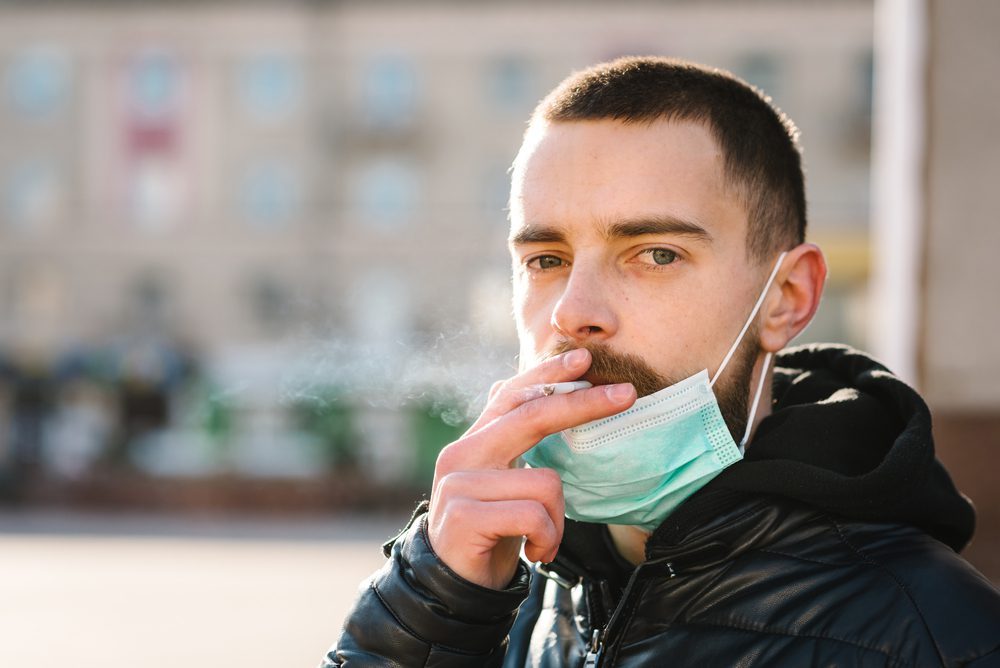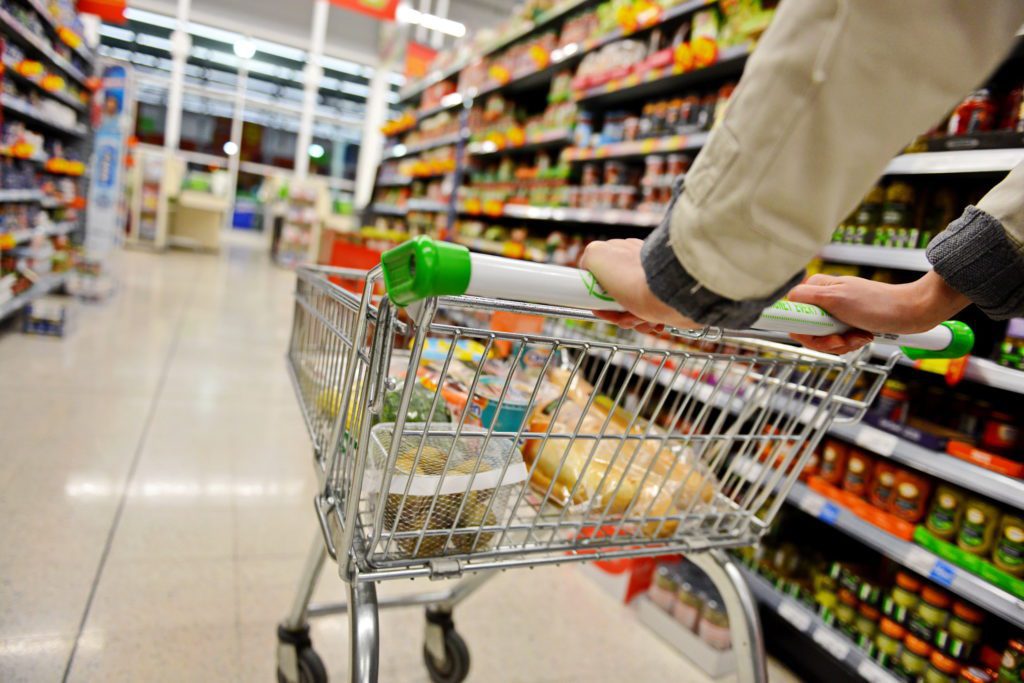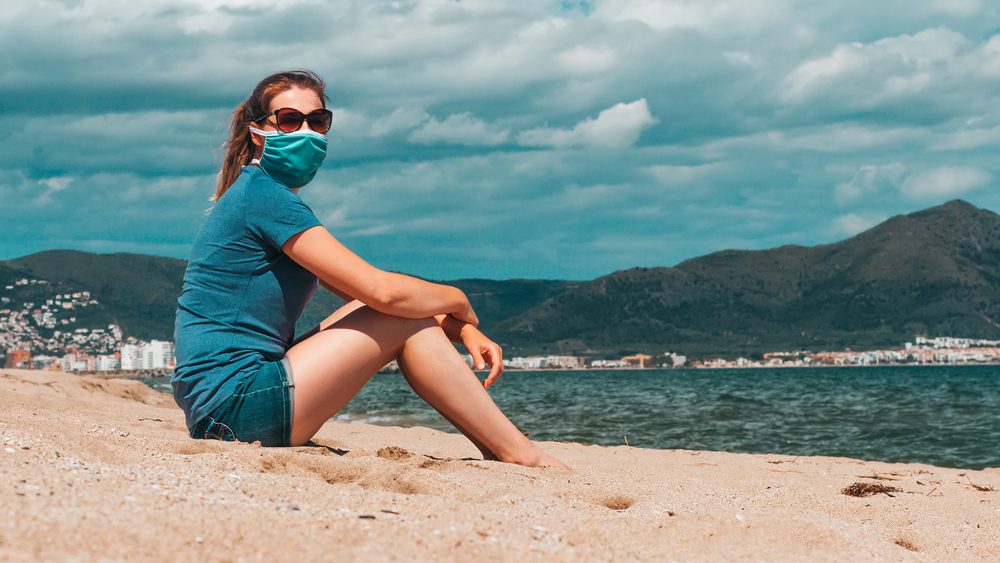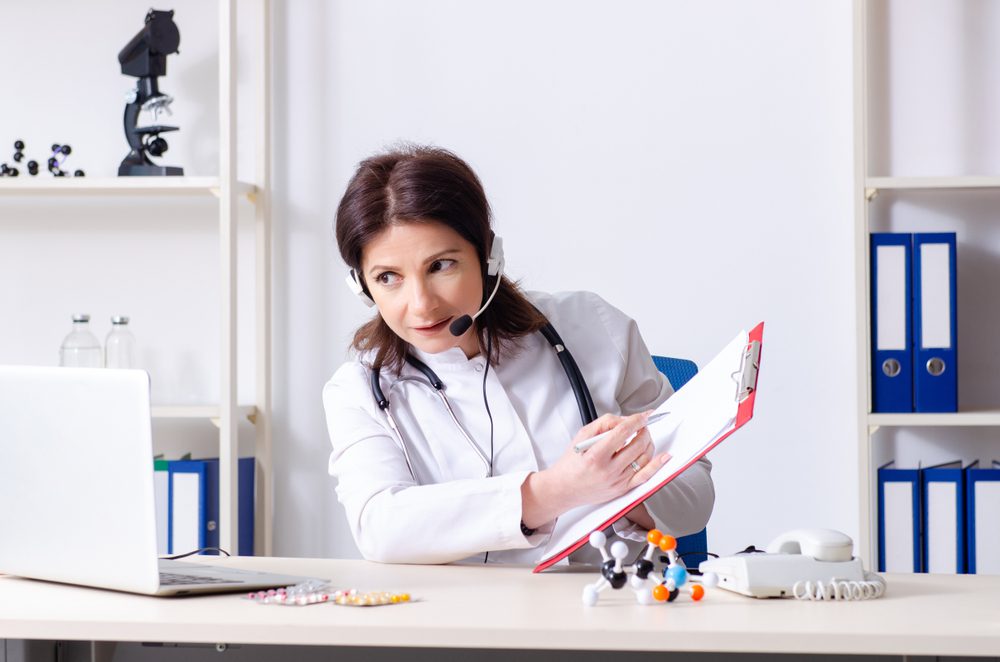
Nothing is what it used to be, that’s for sure. The novel coronavirus has changed almost every aspect of our lives and continues to do so, no matter how hard some of us try to deny its existence and impact. In light of the surging numbers of new coronavirus cases across the United States, it’s never been more important to stay safe and practice caution with everything we do.
Apart from avoiding touching your face or closely interacting with other people, here’s what specialists say we should not do amid the coronavirus pandemic, for our own good and for the sake of the people we care about. For more things that might increase the coronavirus risk, check out 7 Risky Activities You Shouldn’t Be Doing With Friends Right Now.
Smoking or vaping
If you need an incentive to stop smoking or vaping, we’ve got one for you: the novel coronavirus. With this powerful respiratory virus lurking around, “keeping your lungs healthy has never been more important,” warns Lucky Sekhon, MD, of RMA of New York. “Anyone with underlying lung disease is going to be at an increased risk of having severe manifestations of COVID-19, including pneumonia. And avoiding toxic exposures to cigarette smoke or the chemicals from vaping will protect your lungs from damage and inflammation that could make them even more vulnerable to severe infection.”
If you’re still not convinced, maybe these 7 Things That Happen to Your Body When You Quit Smoking will get you to kick this habit to the curb.
Coming into contact with high-touch items without disinfecting
You know how important it is to wash your hands as often as possible, right? Unfortunately, what some people don’t know is that the surfaces they touch should be just as thoroughly washed and cleaned to avoid picking up the virus on your hands.
“Regular thorough hand-washing has been shown to be one of the most important measures in reducing your risk of infection and spreading it to others,” says Sekhon. “But it’s also important to disinfect regularly-used surfaces, like desks, doorknobs, and cell phones.”

Going grocery shopping too often
When the stay home and shelter-in-place orders were first issued, it was clear for most of us that we had to avoid interactions with other people, maintain social distancing and spend as little time as possible in crowded places such as the supermarket.
Just because states have started lifting and easing the restrictions, doesn’t mean we shouldn’t still follow the same safety rules, especially with new coronavirus cases surging in several states such as these ones. According to Sandra Kesh, MD, deputy medical director and infectious disease specialist at Westmed Medical Group, we should all try to “minimize how often we have to take trips beyond our own home,” That’s because “to some extent, this is a numbers game: The more encounters you have with people outside of your household, the greater your risk of picking up the infection.”
Taking new medication or carrying out risky activities
Apart from maintaining social distance and following essential hygiene rules, it’s also important to avoid doing things that could jeopardize your health and send you straight to the hospital. “This includes taking new medications or supplements—unless it’s under the care and guidance of your doctor—and engaging in high-risk activities, like unprotected sexual encounters and excessive drinking,” warns Kesh.
The hospitals are overwhelmed by the huge number of people infected with the novel coronavirus. Surely you don’t want to end up in a place where the transmission risks are huge. To stay on the safe side, here are The Riskiest and Safest Activities to Do Right Now, According to CDC.

Attending small gatherings
We’ve all missed our friends and families and would like nothing more than to be able to see each other the way we used to. Unfortunately, we might be putting ourselves or our loved ones at unnecessary risks.
“I know we’ve all been stuck at home for a long time and we want to get out and socialize. You might be thinking it’s only 10 or 15 people, and you’ll be fine,” says Eudene Harry, MD, medical director at Oasis Wellness and Rejuvenation Center in Orlando, Florida. “Just remember it only takes one person with an infection to put many people at risk. … Think of protecting the people you care about.”
Meeting someone new
Dating has always been tricky but in the age of the coronavirus, things have become ten times more complicated. With most restaurants and movie theaters still closed, people are trying to find other ways and places to meet in person. But is it really worth the risk? According to Niket Sonpal, MD, an internist and gastroenterologist in New York City, meeting new people right now is simply not safe.
“If you do want to find love, this would be a great time to establish more in-depth conversations with potential romantic partners online, avoiding the need to meet in person or move too quickly,” he recommends. Since we’re on the subject of dating, 17 Most Common Dating Mistakes, According to Relationship Experts. Make sure you avoid them when things go back to normal.

Assuming you won’t get infected
It’s true that older adults are at a higher risk of becoming infected with COVID-19 and developing severe complications, but a younger person could also contract the virus just as easily. Don’t bet your health or the health of people around you on a presumably strong immune system. “Don’t assume you’re not going to get infected,” says Denise Pate, MD, an internal medicine physician with Medical Offices of Manhattan. “Take every precaution possible,” advises the doctor as well as most health experts around the world.
Read also These Are the Places You’re Most Likely to Get Infected With COVID-19, According to Doctors.
Assuming you’re not contagious
COVID-19 can be extremely deceiving. As numerous studies have revealed, a person can be infected with the virus and not show any symptoms, carelessly walking around and unknowingly passing on the virus to other people. Therefore, you shouldn’t rely on the fact that you have no symptoms, therefore no infection!
As Abe Malkin, MD, a family medicine specialist and the founder and medical director of Concierge MD LA, warns, “the incubation period for the virus can be up to 14 days, so patients can be infected several days before they show symptoms.” To know what to pay attention to, here are 14 Signs You’ve Already Had Coronavirus Earlier This Year.

Going to the doctor’s office without an appointment
If you’re feeling sick and suspect you might have COVID-19, don’t go to the doctor’s office without having called in advanced and informed your health care physician of your condition, unless you want to put everyone at risk. “Instead, call your healthcare provider so you can get information on how to get tested,” advises Ramzi Yacoub, PharmD, a Florida-based pharmacist and chief pharmacy officer at SingleCare. “It’s a health risk where you could potentially infect others or yourself, so make sure you have an appointment first.”
You could also opt for virtual medical appointments, but not before checking out 7 Important Facts You Need to Know About Online Doctor Visits.
Believing the internet rumors
We live in a world where we can find almost every information we need on the internet. Unfortunately, not everything you see online is true. “There are many misleading, if not downright dangerous things on the internet right now. The myths that hot weather, certain DIY hand sanitizers, vitamin C, and garlic kill the coronavirus are prevalent but downright wrong,” warns Bruce Moskowitz, MD, of Specialty Aesthetic Surgery in New York City. “If you want good information regarding any questions, stick with the Centers for Disease Control.”
Don’t trust just anyone on the internet and stick to trustworthy sources that are known to provide objective and reliable information.























